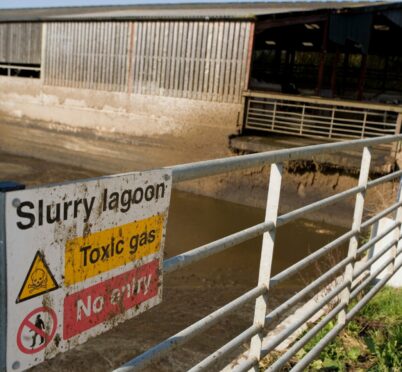A 400,000-gallon slurry spill which caused a “catastrophic” fish kill has prompted an appeal to farmers to double check all equipment to prevent future pollution incidents.
The Rivers Trust conservation charity says last week’s spill in Northern Ireland impacted 18 miles of the Claggan River in Country Tyrone and killed thousands of brown trout, Dollaghan trout, salmon, gudgeon and sticklebacks.
An investigation into how the above-ground store incident happened is currently being carried out by Northern Ireland’s Department of Agriculture, Environment and Rural Affairs (DAERA) water quality inspectors and inland fisheries officers.
Rivers Trust director, Mark Horton, said the spill happened when water levels were low so there has been little dilution of the slurry in the slow-moving river system, which has resulted in many generations of fish being wiped out.
“We appreciate that farmers work very hard to look after the water and wider environment on a daily basis, but we remind everyone to think carefully before mixing, moving and spreading slurry, or other organic manures so that there is no risk of pollution to our watercourses,” he said.
“To avoid any further slurry incidents which have devastating impacts on rivers, we directly appeal to all farmers to urgently check there is sufficient capacity in their slurry stores and that all above ground slurry tank valves are properly maintained and secure.”
The Claggan is a tributary of the Ballinderry river, home to one of Northern Ireland’s last remaining populations of the endangered freshwater pearl mussel, which can live for over 100 years and relies on trout as part of its life cycle.
Mr Horton said: “Our rivers are delicate ecosystems supporting many wildlife and aquatic species and are often supplying our drinking water.
“Rivers are shared natural community assets and need to be considered and protected in all agricultural, industrial, leisure, and domestic activities. Only through working together can we help protect our rivers now and for future generations.
“In order to minimise the impact of slurry run-off into rivers and streams, we encourage farmers to follow best practice and only spread slurry where land and weather conditions allow, always checking weather forecasts before spreading as rainfall could wash valuable nutrients off your land.”


